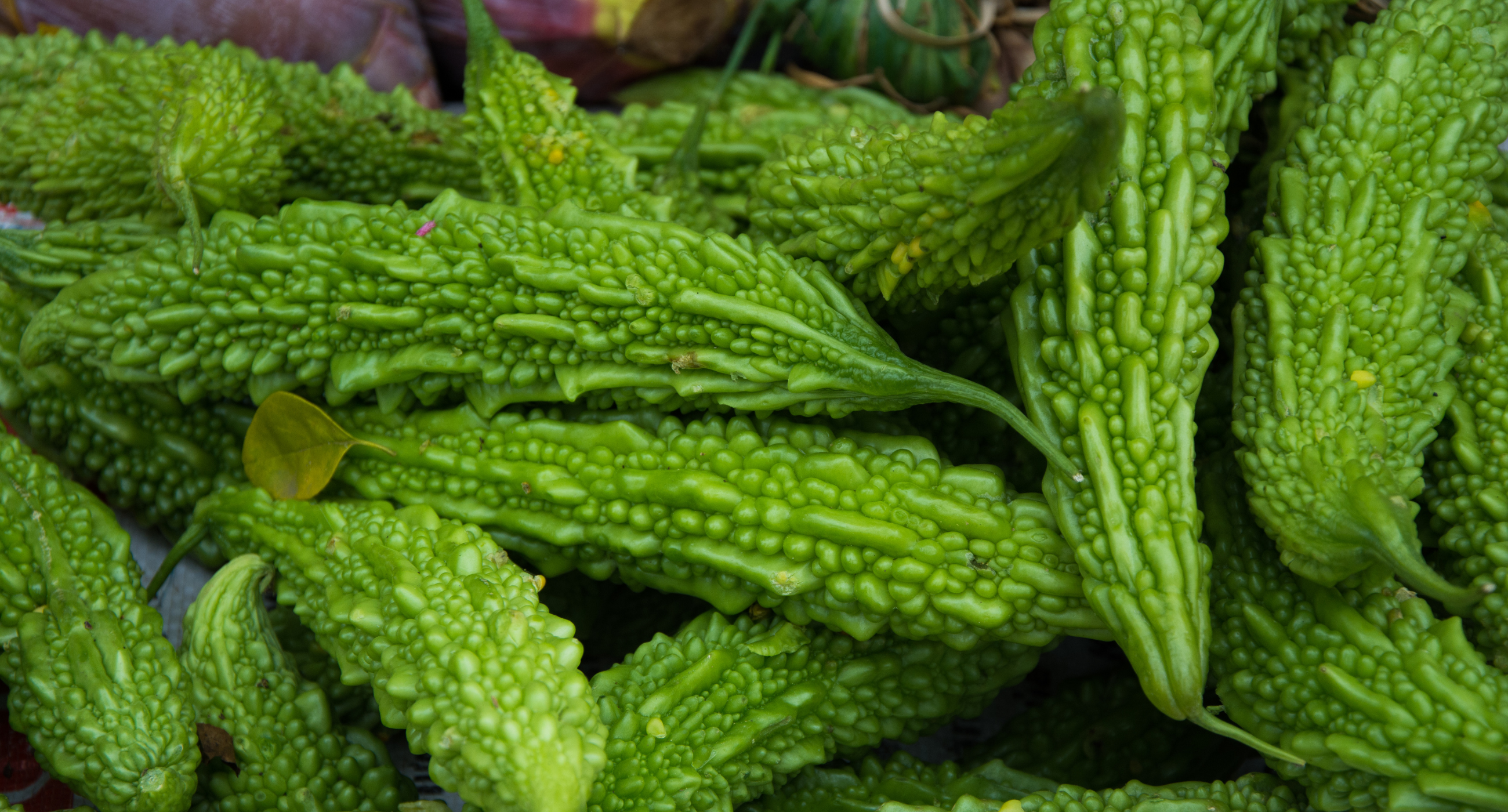
Bitter Melon
Scientific Name: Momordica charantia
Herbal Profile of Bitter Melon (Momordica charantia)
Common Name: Bitter Melon, Bitter Gourd, Balsam Pear
Botanical Name: Momordica charantia
Family: Cucurbitaceae (Gourd family)
Description:
Bitter melon is a tropical and subtropical vine native to Asia, Africa, and the Caribbean. It is well-known for its edible, bitter-tasting fruit, which is used in both culinary and medicinal practices. The plant is widely cultivated for its fruit, which is traditionally used for managing various health conditions, particularly in relation to blood sugar and digestive health.
Key Constituents:
- Charantin: A compound known for its blood sugar-lowering effects.
- Polypeptide-p (plant insulin): Mimics the action of insulin.
- Vicine: An alkaloid that contributes to its hypoglycemic effects.
- Lectins: Influence blood sugar levels by acting on peripheral tissues.
- Momordicin and Saponins: Provide anti-inflammatory and antioxidant effects.
Medicinal Uses:
- Blood Sugar Regulation:
- Digestive Health:
- Antimicrobial and Antiviral Properties:
- Weight Loss:
- Cancer Prevention:
- Heart Health:
- Liver Health:
- Skin Health:
Culinary and Traditional Uses:
- Culinary Ingredient: Bitter melon is often used in cooking, especially in Asian, African, and Caribbean cuisines. It is commonly stir-fried, steamed, or used in soups and stews. The bitter taste is often tempered by pairing it with strong spices or sweet flavors.
- Juice: The juice of bitter melon is consumed for its health benefits, particularly to regulate blood sugar and support digestion. It is often blended with other vegetables or fruits to balance the bitterness.
- Tea: Bitter melon leaves and fruits are sometimes brewed into a tea for medicinal purposes.
- Capsules and Extracts: Standardized extracts of bitter melon are available in capsule or powder form for easy supplementation.
Forms of Use:
- Fresh Fruit: Commonly used in cooking, as a juice, or as a natural remedy for blood sugar regulation.
- Tea: Brewed from dried bitter melon leaves or fruit for digestive health and blood sugar support.
- Tinctures and Extracts: Concentrated forms used in traditional medicine or as supplements for managing diabetes and other health conditions.
- Capsules and Powders: Easily accessible in supplement form, often standardized for consistency in dosage.
- Topical Applications: Bitter melon is sometimes used in ointments or poultices to treat skin conditions and wounds.
Precautions:
- Pregnancy: Bitter melon is not recommended during pregnancy as it may stimulate uterine contractions and lead to miscarriage.
- Hypoglycemia: Individuals taking insulin or other medications for diabetes should use bitter melon with caution, as it can significantly lower blood sugar levels. Monitoring blood sugar levels closely is important to avoid hypoglycemia.
- Liver Issues: While bitter melon can support liver health, excessive use may cause liver inflammation or toxicity in sensitive individuals.
- Gastrointestinal Discomfort: The bitter nature of the fruit can sometimes cause mild gastrointestinal discomfort, such as nausea or diarrhea, particularly if consumed in large amounts.
Growing and Harvesting:
- Climate: Bitter melon thrives in warm, tropical, or subtropical climates. It requires full sunlight and moist, well-drained soil to grow successfully.
- Planting: Typically grown from seeds, bitter melon can be cultivated in home gardens or farms. It climbs using tendrils and produces fruit in summer.
- Harvesting: The fruit is harvested while still green and immature, as this is when its medicinal properties are most potent. Mature fruits become orange and more bitter.
Traditional and Cultural Significance:
- Ayurvedic Medicine: In Ayurveda, bitter melon is used to balance the body’s “pitta” and “kapha” doshas and is considered beneficial for cooling the body, detoxifying the blood, and treating fever and infections.
- Traditional Chinese Medicine (TCM): Bitter melon has long been used in TCM to treat diabetes, digestive disorders, and infections. It is believed to clear heat, improve digestion, and expel toxins.
Bitter melon is highly regarded for its ability to manage diabetes, aid digestion, and support the immune system. Although it is quite bitter in taste, its health benefits are significant, making it a valuable herb in both traditional and modern medicine.
